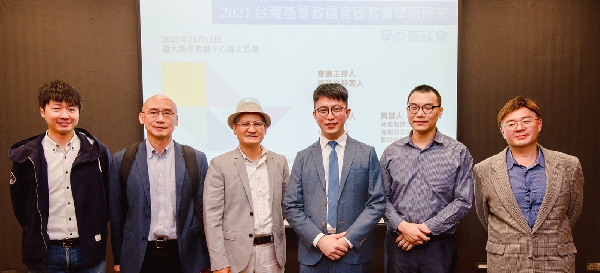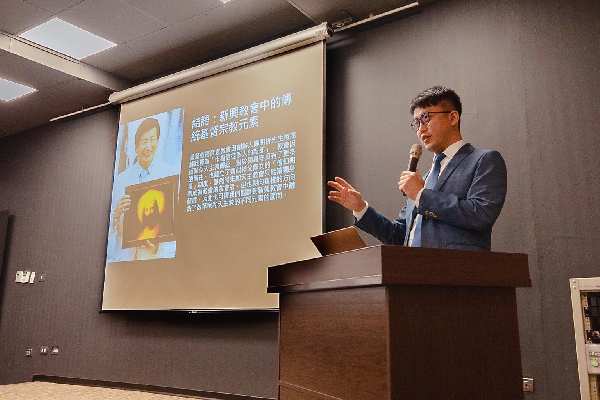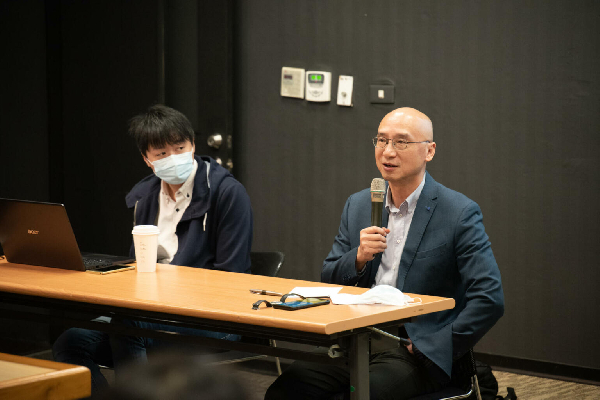





On Nov. 13th, 2021, a scholarly seminar led by the CGM scholarly team was held in the National Taiwan University GIS Convention Center. The seminar broached several issues, such as how new religions underwent social suppression, from religious persecution from the Chinese Communist Party, to South Korea’s judicial controversies, releasing a total of three theses. A total of three papers were published during this seminar.
CGM states that as an up and rising church of its kind, it has rapidly localized since its entering of Taiwan from South Korea in 1988, reaping achievements in both gender equality and Taiwanese identity recognition and other important social issues. As a scholar concerned with religious freedom in Mainland China and East Asia areas, Massimo Introvigne has made a formal agreement to collaborate with National Chengchi University: Center for the Study of Chinese Religions in late June of 2021, along with initiating a series of academic researches in the field.
Invited to the scholarly seminar were Dr. Su Re-hua and Dr. Tsai Chi-cher, both from Dept.of East Asia Studies at National Taiwan Normal University, together they published three papers. Other who also has joined the seminar in discussion are Hai Shuer Balalafi, Assistant Professor from National Taitung University, and Zheng Muqun, Assistant Professor from Tamkang University Dept. of History.
The first paper explores the differences in the development strategies between the Korean-like CGM and Unification Church. Illustrated by three-layer co-construction. CGM adopts positive external communication method after 2013, and "in the name of CGM and its founder Pastor Jung Myung Seok" to hold a number of social welfare activities, which is of positive significance to the development of CGM in the local area. As a result, CGM nearly doubled to 2,000 people in the decade after 2009. Professor Hai Shuer commented that the article is very exciting. Although CGM is an open religious belief group, in the process of localization, it will not overemphasize religious belief, but aims to convey the spirit of love and peace.
The second paper focuses on how the church founder, Pastor Jung Myung Seok, realized from the life experience of his youth, combining with the parable of the Bride and Groom in the Bible, interpreting Jesus Christ as the Groom of each person. It has become the core value of the catechism in the future, and it also makes the church return to a similar Catholic tradition in practice, and establishes a system of faith stars similar to priests and nuns, so as to cultivate full-time clergy. This is unique among emerging churches that originally developed from the Protestant system. Professor Zheng Muqun praised the paper for showing Dr. Tsai's good academic standards. He also believed that Pastor Jung Myung Seok's views on celibacy and marriage were similar to those of the Apostle Paul, which enabled the church to develop in a balanced way.
The third paper looks at the social context of the suppression of emerging religions. It is especially sympathetic to re-examine how the founder of the church, Pastor Jung Myung Seok, experienced religious persecution by the Chinese Communist regime before and after due to a specific legal dispute, and also suffered the double harm of an unjust case in South Korea's judicial dispute. The publisher believes that, as Sen Yan, the author of "On Unjust Crime," said, citizens who are in a trial position should not regard the defendant as someone who is truly guilty just because there is a so-called "verdict".
Professor Lin Jiahe praised the two co-authors for their excellent analysis. Regarding the case of Pastor Jung Myung Seok, he believes that the case is an obvious judgment that violates the law, and cites the case of the United States, and believes that the case has a great chance of being vindicated. The number of participants at the seminar was enthusiastic, with more than 40 people fully seated, and many questions were raised during the seminar. It can be said that it was a very successful seminar.
Referenced: https://cnews.com.tw/212211113a05/